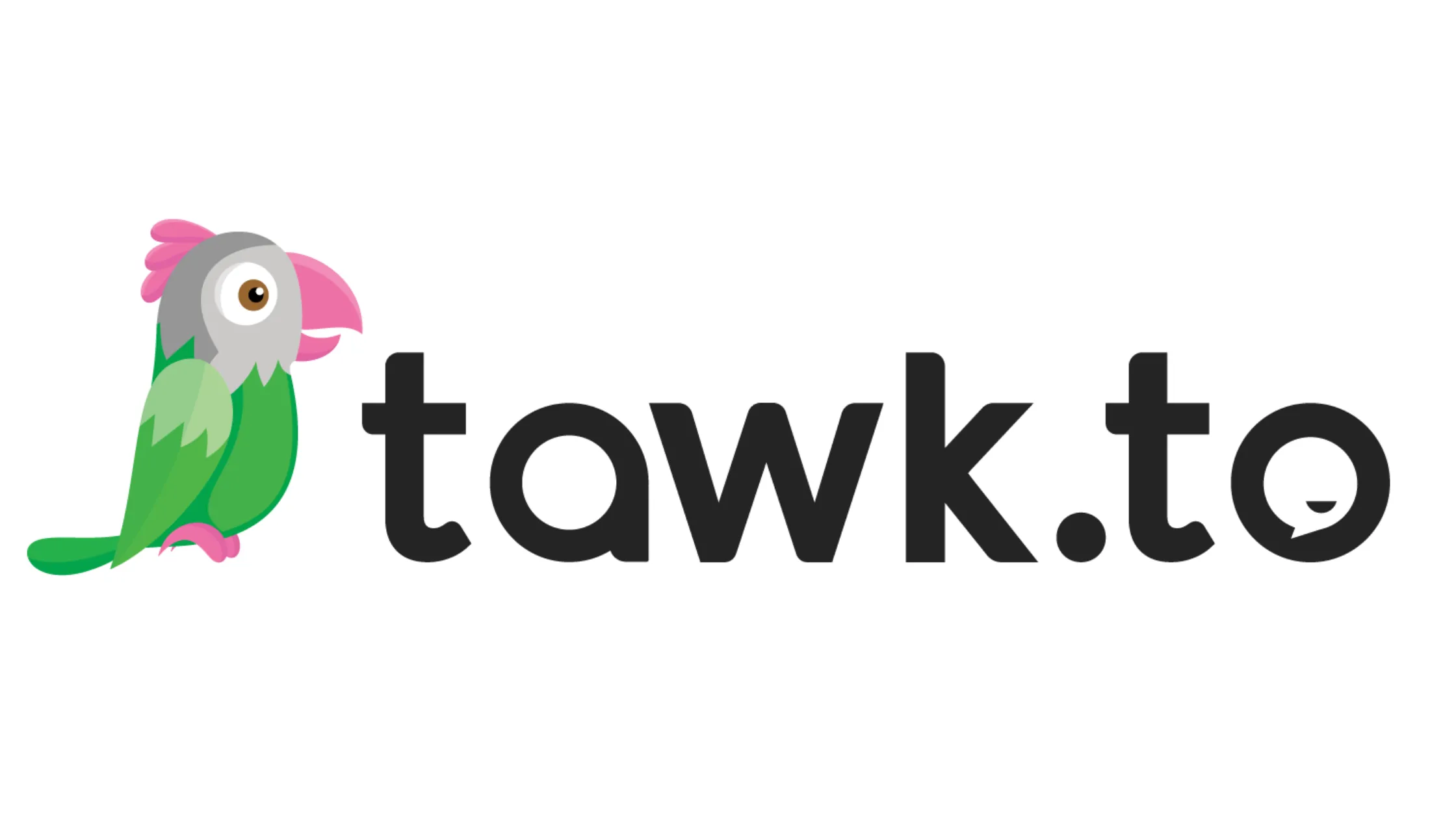
What is Content Marketing?
Content marketing is a cost-effective way for startups to build trust, attract leads, and drive growth. Learn how to get started today!
As an early-stage startup founder, you're probably always on the hunt for efficient ways to gain traction, build an audience, and convert leads. But what if I told you there’s a powerful tool right under your nose that doesn't require a hefty budget or expensive ad spend? That tool is content marketing. It’s the strategy that can not only establish your brand but also educate your audience, build trust, and ultimately drive sales.
Now, you might be thinking, “I’m not a writer, and I don’t have the time.” I get it—I’ve been in your shoes. As the co-founder of multiple startups and now the lead at Horizon Labs, I've seen firsthand how content marketing works like a charm, even for founders with zero marketing background. Let’s dive in to see how this strategy can help you grow your startup.
What is Content Marketing?
Content marketing is the process of creating and sharing valuable, relevant, and consistent content to attract and retain a clearly defined audience—and ultimately, to drive profitable customer action. This might sound simple, but the key here is the word valuable. You’re not just pushing out content for the sake of it; you’re offering something that resonates with your target audience.
So, what qualifies as "content"?
- Blog posts
- Videos
- Infographics
- Podcasts
- Case studies
- Whitepapers
The goal is to provide useful insights, address pain points, or entertain—while subtly showcasing your product or expertise in the process.
Why Content Marketing is Perfect for Startups
Content marketing is a natural fit for startups. Let me tell you why:
- Cost-Effective: Traditional advertising can be expensive, and let’s face it, not every early-stage startup has a six-figure marketing budget. Content marketing, on the other hand, costs significantly less and has a long shelf life. A well-written blog post can continue to bring in leads months, even years, after you publish it.
- Builds Trust and Authority: In the early stages, you're not just selling a product; you’re selling your vision and your credibility. Consistent, high-quality content positions you as a thought leader in your space. For example, when we at Horizon Labs started working with Yura Health, a healthtech startup, content played a critical role in establishing their credibility before they had even launched their MVP.
- Educates Your Audience: Most potential customers aren’t ready to buy the moment they stumble upon your product. They might need to learn more about the problem you're solving, why your solution is unique, or even the industry itself. Content marketing helps guide them along this journey. By offering valuable resources, you're positioning yourself as a solution-provider when they’re ready to take action.
- SEO Benefits: Consistently publishing quality content is one of the best ways to improve your website’s search engine ranking. Higher rankings mean more traffic, more leads, and more opportunities for growth. When we worked with Flair Labs (YC S22), content marketing, combined with a solid SEO strategy, was a game-changer in accelerating their go-to-market strategy.
How to Build a Content Marketing Strategy from Scratch
You don’t need a full-fledged marketing team to start with content marketing. In fact, many startup founders handle their initial content efforts themselves. Here's a straightforward approach to get started:
1. Define Your Audience
Who are you writing for? If you don't have a clear idea of who your target audience is, it's easy to waste time creating content that doesn’t resonate. Try to define your ideal customer. For instance, are you building an e-commerce platform aimed at busy parents? Then your content should reflect their interests, pain points, and daily struggles. At Horizon Labs, we start all our projects by understanding the target users first. That ensures we build products and content that actually matter.
2. Create a Content Calendar
Consistency is key to any content marketing strategy. You don’t need to publish every day, but having a regular schedule keeps you top of mind for your audience. Start with a simple content calendar. It could be as basic as planning one blog post a week for the next three months. Tools like Trello or Notion can help you manage this process efficiently.
3. Focus on Value, Not Sales
This is the heart of content marketing. Remember, people don’t like being sold to—they like to feel educated or entertained. Offer actionable insights, how-to guides, or case studies that add value without pushing a hard sell. A great example of this is our case study on Kidsy.co, where we shared the lessons learned in building an online marketplace without sounding promotional.
4. Repurpose Your Content
One blog post can turn into multiple forms of content. You could take a long article and break it down into a series of tweets, create a video explainer, or even turn it into an infographic. This saves time and maximizes the reach of your content.
5. Track and Adjust
Content marketing is a long-term strategy, but that doesn't mean you shouldn't measure your results along the way. Tools like Google Analytics or HubSpot can help you track which pieces of content are driving traffic, leads, or conversions. Based on this data, you can adjust your strategy over time to focus on what works best.
Common Pitfalls in Content Marketing
Even though content marketing is powerful, it's not a magic bullet. Here are a few mistakes you should avoid:
- Inconsistent Posting: Posting once and then disappearing for months won't get you results. Consistency is key.
- Too Much Promotion: Content that's too sales-heavy can turn your audience off. Balance educational and promotional content.
- Not Measuring Results: If you’re not tracking what’s working, you won’t know how to improve. Always measure your content’s performance.
How Horizon Labs Supports Your Content Marketing Needs
At Horizon Labs, we understand that building a product isn’t just about engineering; it’s about creating a full-fledged go-to-market strategy, and content marketing is a big part of that. Whether you’re still in the prototyping phase or ready to scale, we can help you align your content efforts with your business goals. Our clients, like Flair Labs and Yura Health, have seen the power of combining strategic tech development with effective content marketing to accelerate their growth.
If you’re ready to grow your startup without the typical engineering headaches, reach out to us. Contact us at info@horizon-labs.co or schedule a call at https://www.horizon-labs.co/contact, and let’s discuss how we can help you build and market your product better, faster, and more cost-effectively than the competition.
Frequently Asked Questions (FAQs) about Content Marketing:
Q: How long does it take for content marketing to show results?
A: Content marketing is a long-term strategy. It usually takes 3-6 months before you start seeing measurable results like increased traffic or lead generation. However, consistency and quality play a significant role in how quickly you see these results. Startups that regularly publish valuable content can sometimes see quicker improvements, especially if they’re targeting niche markets with less competition.
Q: What kind of content should startups focus on first?
A: Startups should begin with educational content that solves problems for their target audience. Blog posts, case studies, and how-to guides are excellent starting points. These types of content establish authority in your niche and help potential customers understand how your product or service fits into their lives. As your content strategy matures, consider expanding into videos, podcasts, or webinars to engage with your audience in different ways.
Q: Can content marketing work for B2B startups, or is it more for consumer-focused businesses?
A: Content marketing works exceptionally well for B2B startups. In fact, it's one of the best ways to educate decision-makers about your solution. B2B customers often have longer sales cycles, and content like whitepapers, case studies, and industry reports can help guide them through each stage of their buyer's journey. The key is providing content that addresses their specific business needs and challenges.
Q: How can startups repurpose their content to reach a broader audience?
A: Repurposing content is a great way to maximize your efforts. For example, a single blog post can be turned into a series of social media updates, a podcast episode, or a short video. You can also use customer testimonials or user case studies as downloadable PDFs, which are particularly useful for B2B sales. Repurposing helps you reach different segments of your audience who may prefer consuming content in various formats.
Q: What are some common mistakes startups make in content marketing?
A: One common mistake is neglecting the planning phase. Without a clear strategy, startups might produce random content that doesn’t align with their audience's needs. Another mistake is focusing too much on promotion rather than delivering valuable insights. Lastly, some startups fail to optimize their content for search engines, making it harder for potential customers to find them online.
Q: Is guest blogging still a good strategy for startups in content marketing?
A: Yes, guest blogging can be an effective strategy if done correctly. It helps you reach a broader audience by leveraging someone else’s platform. The key is to offer valuable, unique insights in your guest posts and ensure the host blog aligns with your target audience. Guest blogging can also improve your SEO by building backlinks to your website, which boosts your search engine rankings.
Q: How can startups use content marketing to improve their customer retention?
A: Content marketing can keep your customers engaged even after they’ve made a purchase. You can use educational content like how-to guides, tutorials, or newsletters to provide ongoing value. For example, product updates or best practices on how to maximize the use of your product can keep customers informed and invested in your solution, improving retention and building long-term loyalty.
Q: What metrics should startups track to measure the success of their content marketing efforts?
A: Startups should track a variety of metrics to gauge the success of their content marketing. Key performance indicators (KPIs) include website traffic, time spent on pages, bounce rate, conversion rate, and lead generation. Additionally, tracking social media engagement, such as shares, comments, and likes, can give insight into how well your content resonates with your audience. Finally, monitor your SEO performance by tracking keyword rankings and organic search traffic growth over time.
Q: How can startups make their content stand out in a crowded market?
A: To make content stand out, focus on quality over quantity. Create unique, data-driven, or expert-backed content that offers real value to your audience. Personalized stories, customer success cases, or niche-specific insights can also help your content cut through the noise. Visual elements like infographics, videos, and compelling images add appeal. Additionally, optimizing for SEO ensures your content is discoverable by the right audience.
Q: How often should startups post new content?
A: Consistency is more important than frequency. While some startups may publish content multiple times a week, others may focus on one high-quality post per week or even per month. The key is to maintain a schedule that balances quality and quantity. A realistic starting point for most startups is one blog post per week, then scaling as resources allow.
Q: Should startups outsource content creation or keep it in-house?
A: Whether to outsource or keep content creation in-house depends on your team’s skills and bandwidth. Outsourcing to experienced writers or content agencies can help you scale quickly and ensure a steady stream of high-quality content. However, in-house teams have the advantage of deep product knowledge and a more direct connection to the brand’s voice. Many startups do a mix of both—outsourcing for volume or specialized expertise while keeping strategic content development in-house.
Q: How important is SEO in content marketing for startups?
A: SEO is critical for content marketing, especially for startups looking to drive organic traffic without a large marketing budget. Optimizing your content for relevant keywords can help you rank higher on search engines, making it easier for potential customers to find you. Beyond keyword optimization, ensure your content is well-structured, easy to read, and offers real value to improve your chances of ranking and retaining visitors.
Q: What role does social media play in content marketing for startups?
A: Social media is a key distribution channel for content marketing. It helps amplify your content’s reach and fosters engagement with your audience. Sharing blog posts, videos, infographics, and other content on platforms like LinkedIn, Twitter, and Instagram can help you gain visibility, drive traffic back to your site, and build relationships with your audience. Social media also provides immediate feedback through comments and shares, allowing you to fine-tune your content strategy based on what resonates.
Q: How can a startup use customer-generated content in their content marketing strategy?
A: Customer-generated content, such as reviews, testimonials, and social media posts, is a powerful way to build trust and social proof. Startups can encourage customers to share their experiences or provide feedback, which can then be used in case studies, blog posts, or social media shoutouts. User-generated content shows authenticity and reinforces the value of your product or service through real-world applications, which can be especially compelling for prospective customers.
Q: Can content marketing be effective for pre-launch startups?
A: Absolutely! Pre-launch startups can use content marketing to build awareness and generate interest before the product even hits the market. By publishing blog posts, creating landing pages, and sharing sneak peeks or behind-the-scenes content, you can start building an audience and a waitlist of potential customers. This early content also positions you as an expert in your field, making it easier to gain traction once you officially launch.
Whether you're validating an idea, scaling an existing product, or need senior engineering support—We help companies build ideas into apps their customers will love (without the engineering headaches). US leadership with American & Turkish delivery teams you can trust.
Need Developers?
We help companies build ideas into apps their customers will love (without the engineering headaches). US leadership with American & Turkish delivery teams you can trust.
















For Startups & Founders
We've been founders ourselves and know how valuable the right communities, tools, and network can be, especially when bootstrapped. Here are a few that we recommend.

Mistakes to Avoid When Building Your First Product
Learn the key mistakes founders make when building their first product—and how to avoid them for a faster, smoother launch.
Read more
The Rise of AI in Product Development: What Startups Need to Know
Learn how AI is transforming product development for startups. From MVPs to scaling, here’s what founders need to know in today’s AI-driven world.
Read more
No-Code vs. Custom Development: Which is Right for Your Startup?
Weighing no-code vs. custom development? Learn which is right for your startup depending on stage, budget, and product complexity.
Read more
What is Mixpanel?
Learn how Mixpanel helps startups track user behavior to improve products and accelerate growth with clear data-driven insights.
Read more
How Tawk.to Can Boost Your Startup’s Customer Support Game
Learn how Tawk.to can benefit startups by enhancing customer support and engagement. Perfect for early-stage founders!
Read more
Grow Your Startup With Anthropic's AI-Powered Tools
Discover how Anthropic's cutting-edge AI tools can accelerate your startup's success. Learn about their benefits and see why they can be trusted by startups.
Read more
What is Data-Driven VC?
Learn what a data-driven VC means and how such investors can benefit your startup’s growth and fundraising journey.
Read more
What is Blockchain?
A beginner-friendly guide on blockchain for startup founders, covering key concepts, benefits, challenges, and how to leverage it effectively.
Read more
What is Cybersecurity?
Learn cybersecurity basics tailored for startup founders. Understand key risks, best practices, and how to protect your startup from tech threats.
Read more
What is Seedcamp?
Learn what Seedcamp is, how its European seed fund and accelerator program work, and how founders can use its capital, mentorship, and network to scale their st
Read more
What is AngelList?
AngelList is a prime platform connecting startup founders to investors, talent, and resources to accelerate early-stage growth.
Read more
What is 500 Startups?
Learn what 500 Startups (now 500 Global) is, how its accelerator and seed fund work, and when founders should consider it—plus tips for early-stage startups.
Read more.webp)